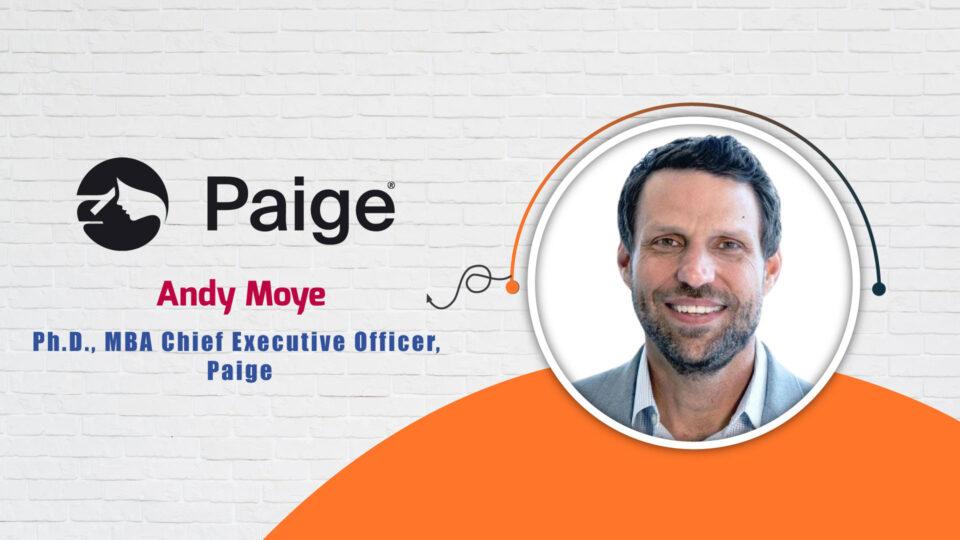-
Fil d’actualités
- EXPLORER
-
Pages
-
Groupes
-
Evènements
-
Blogs
-
Marketplace
Andy Moye, CEO at Paige - AITech Interview

With nearly two decades of experience in molecular diagnostics, biotechnology, and life sciences, Andy Moye is a leader in the fields of pathology, oncology, genomics, and precision medicine.
As CEO of Paige, Andy is driving the company’s mission to advance cancer detection, patient care, and treatment through cutting-edge AI technology. Paige aims to transform cancer diagnostics by harnessing the power of tissue-based AI, not only through industry-leading AI products but also by collaborating with labs worldwide to improve patient care.
Under Andy’s leadership, Paige successfully launched Paige Prostate Detect, the first AI-based pathology product authorized by the FDA for cancer detection in prostate biopsies. Andy’s focus extends to the development of disruptive biomarker AI algorithms, empowering pathologists to access previously inaccessible information.
What are the core values on which the organization is built and what is the mission of the organization?
Paige is guided by being A.D.E.P.T – accountable, disruptive, execution-focused, patient-centric, and trusting. We work every day toward creating an environment where our employees feel supported so that they can create the best possible products for clinicians.
Our mission as an organization is to transform the world of cancer care through these AI tools – We frame this for most of the clinical users by reminding them that we already have techniques like IHC, PCR, NGS, and ISH, and now we have AI. AI is another tool at pathologists’ fingertips that can help them get to the right answer with greater efficiency and confidence.
Tools like the Paige Prostate Suite and Paige Breast Suite can ensure pathologists catch even the smallest and most complex cancers and are able to grade and quantify cancer in a more standardized way. For example, using Paige Breast Lymph Node, pathologists might catch a metastatic lesion that would have otherwise been missed because it was too small. In fact, in one recent study, Paige’s Breast Lymph Node improved pathologist sensitivity by 12%. This directly impacts treatment, which of course is the most important impact we can have.
What are some of the biggest challenges that you face when using AI in cancer research and treatment, and how are you addressing these challenges?
The biggest challenge in the adoption of AI is really just change management. But AI tools are just that – tools that work together with pathologists to support a final diagnosis and streamline workflows. And like any new technology that gets adopted in healthcare, AI and digital pathology must address all facets of the quadruple aim – that is to reduce costs, improve clinical outcomes, and enhance physician and patient experience. We believe AI directly impacts all four areas.
So, to overcome this challenge, we educate pathologists, clinicians, and laboratory professionals about the benefits of AI and digital pathology. We enable these pathologists by providing powerful information at their fingertips, so they can make the best treatment decisions for patients. We may see a whole new generation of pathologists that will come into the field who are more like informatic pathologists. They will understand how to use the technology and how to curate the information they’re getting from AI and all the different algorithms. When pathologists see a whole-slide image on a viewer and all of the information they can see digitally, they’re blown away by how much easier and more efficiently it allows them to work.
Read the Full Interview @ https://ai-techpark.com/aitech-interview-with-andy-moye/
- Art
- Causes
- Crafts
- Dance
- Drinks
- Film
- Fitness
- Food
- Jeux
- Gardening
- Health
- Domicile
- Literature
- Music
- Networking
- Autre
- Party
- Religion
- Shopping
- Sports
- Theater
- Wellness
